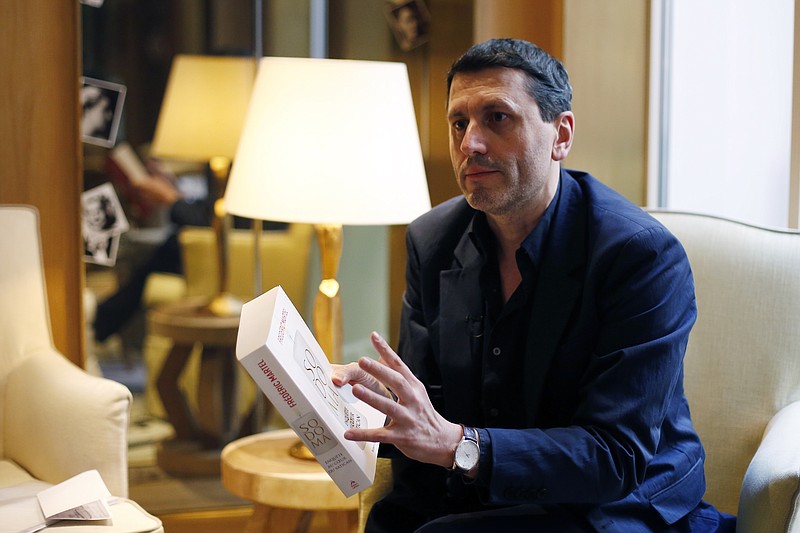PARIS (AP) — A gay French writer has lifted the lid on what he calls one of the world’s largest gay communities, the Vatican, estimating that most of its prelates are homosexually inclined and attributing much of the current crisis in the Catholic Church to an internal struggle.
In the explosive book, “In the Closet of the Vatican,” author Frederic Martel describes a gay subculture at the Vatican and calls out the hypocrisy of Catholic bishops and cardinals who in public denounce homosexuality but in private lead double lives.
Aside from the subject matter, the book is astonishing for the access Martel had to the inner sanctum of the Holy See. Martel wrote he spent four years researching it in 30 countries, including weeks at a time living inside the Vatican walls. He said the doors were opened by a key Vatican gatekeeper and friend of Pope Francis who was the subject of the pontiff’s famous remark about gay priests, “Who am I to judge?”
In an interview Friday in a Paris hotel, Martel said he didn’t tell his subjects he was writing about homosexuality in the Vatican. But he said it should have been obvious to them since he is a gay man who was researching the inner world of the Vatican and has written about homosexuality before. He said it was easier for him, as a gay foreigner, to gain the trust of those inside the Vatican than it would have been for an Italian journalist or Vatican expert.
“If you’re heterosexual it’s even harder. You don’t have the codes,” he told the Associated Press. “If you’re a woman, even more so.”
Martel said he conducted nearly 1,500 in-person interviews with 41 cardinals, 52 bishops or monsignors, and 45 Vatican and foreign ambassadors, many of whom are quoted at length and in on-the-record interviews he said were recorded. Martel said he was assisted by 80 researchers, translators, fixers and local journalists, as well as a team of 15 lawyers. The 555-page book is being published simultaneously in eight languages in 20 countries, many bearing the title “Sodom.”
The Vatican didn’t immediately respond to a request for comment.
Martel appears to want to bolster Francis’ efforts at reforming the Vatican by discrediting his biggest critics and removing the secrecy and scandal that surrounds homosexuality in the church. Church doctrine holds that gays are to be treated with respect and dignity, but homosexual acts are “intrinsically disordered.”
“Francis knows that he has to move on the church’s stance, and that he will only be able to do this at the cost of a ruthless battle against all those who use sexual morality and homophobia to conceal their own hypocrisies and double lives,” Martel wrote.
But the book’s Feb. 21 publication date coincides with the start of Francis’ summit of church leaders on preventing the sexual abuse of minors, a crisis that is undermining his papacy. The book isn’t about abuse, but the timing of its release could fuel the narrative, embraced by conservatives and rejected by the gay community, that the abuse scandal has been caused by homosexuals in the priesthood.
Martel is quick to separate the two issues. But he echoes the analysis of the late abuse researcher and psychotherapist A.W. Richard Sipe that the hidden sex lives of priests has created a culture of secrecy that allowed the abuse of minors to flourish. According to that argument, since many prelates in positions of authority have their own hidden sexual skeletons, they have no interest in denouncing the criminal pedophiles in their midst lest their own secrets be revealed.

